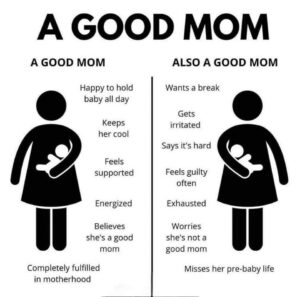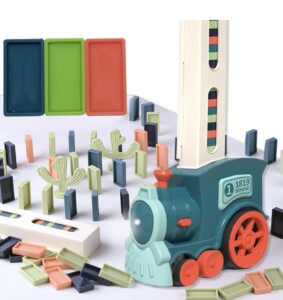The journey of motherhood is as diverse as it is rewarding, encompassing a wide range of emotions and experiences. Often, society paints a picture of the “ideal” mother, but the reality is far more complex and nuanced. A good mom can manifest in various forms, each valid and worthy of recognition and respect.
The Nurturing Mom
A good mom might be one who finds immense joy in holding her baby all day, feeling a deep connection and fulfillment in these moments. She’s often seen keeping her cool in challenging situations, a testament to her patience and love. This mom feels supported and energized, confidently believing in her ability to be a great mother. Her sense of fulfillment in motherhood is evident, and she embraces this role with open arms.
Finding Joy in Every Moment
For the nurturing mom, happiness is found in the simple act of holding her baby, feeling the warmth and bond that grows with each cuddle. She cherishes every giggle, coo, and milestone, seeing these as precious rewards of motherhood. Her days are often centered around her child’s needs, and she finds contentment in this routine.
Patience and Calmness
A notable trait of the nurturing mom is her remarkable patience. She faces the challenges of motherhood with a calm demeanor, managing tantrums, sleepless nights, and feeding struggles with a composed attitude. This patience is not just a virtue but a gift she gives to her child, creating a peaceful and loving environment.
Feeling Supported and Energized
The nurturing mom often draws her energy from the support she receives from her partner, family, and friends. This support is vital in keeping her energized and focused. It allows her to be present and engaged with her child, reinforcing her belief in her abilities as a mother.
A Belief in Her Role
This mom believes wholeheartedly in her role as a mother. She sees motherhood not just as a part of her life but as a defining aspect of her identity. This belief is what fuels her dedication and commitment, driving her to provide the best care and love for her child.
The Fulfillment of Motherhood
For the nurturing mom, fulfillment comes from seeing her child grow and thrive under her care. She finds joy in the everyday tasks of motherhood, from feeding and bathing to playing and teaching. Her fulfillment is also in knowing that she is providing a secure and loving foundation for her child’s future.

The Seeking-Balance Mom
Conversely, a good mom can also be one who yearns for a break from the constant demands of motherhood. It’s normal for her to feel irritated at times and to openly express that motherhood is hard. This mom might grapple with feelings of guilt and exhaustion, often worrying whether she’s doing a good job. She may even find herself missing her pre-baby life, reminiscing about the freedom and spontaneity she once enjoyed.
Yearning for Personal Time
This mom understands the importance of “me time” and recognizes that taking a break is not a sign of weakness but a necessity for her well-being. She might find herself longing for moments of solitude or activities that reconnect her with her pre-mom self. Whether it’s pursuing a hobby, spending time with friends, or simply enjoying a quiet moment alone, these breaks are crucial for her mental and emotional health.
Navigating Mixed Emotions
The seeking-balance mom often experiences a range of emotions. She may feel immense love and joy in her role as a mother, yet also feel overwhelmed by the constant demands of caregiving. It’s not uncommon for her to feel irritated or frustrated at times, and she’s honest about these feelings. This honesty is a healthy way to acknowledge and address the complexities of motherhood.
Coping with Guilt and Exhaustion
Feelings of guilt are common among seeking-balance moms, especially when they crave time away from their children or when they find aspects of motherhood challenging. Alongside this guilt, there’s often a sense of exhaustion – both physical and emotional. Balancing the needs of her child with her own can be draining, and it’s important for her to recognize and address this exhaustion.
Worrying About Being a Good Mom
One of the most poignant aspects of this mom’s experience is the worry that she’s not a good enough mother. This worry stems from societal pressures and personal expectations. However, it’s important to remember that seeking balance and acknowledging difficulties doesn’t diminish her abilities as a mom; it makes her human.
Missing Her Pre-Baby Life
It’s natural for the seeking-balance mom to sometimes miss her life before motherhood. Reminiscing about the freedom and spontaneity of her earlier years is a normal part of adjusting to the new realities of being a parent. Acknowledging these feelings is a step towards finding a new balance in her life.
The seeking-balance mom’s journey is about navigating the highs and lows of motherhood while trying to retain a sense of self. It’s a delicate balancing act that requires support, understanding, and self-compassion. By acknowledging her needs and seeking balance, she’s not only caring for herself but also setting a healthy example for her children. In this journey, she learns that being a good mom also means taking care of her own well-being.
Embracing the Spectrum
The beauty of motherhood lies in its spectrum. Being a good mom doesn’t mean you have to fit into a specific mold or meet unrealistic standards. It’s about embracing both the joys and challenges that come with raising a child. Whether you’re the mom who finds complete joy in every aspect of motherhood or the one who sometimes longs for a semblance of her old life, you are doing an incredible job.
The Importance of Self-Care and Support
For all moms, self-care and a strong support system are crucial. It’s important to take time for yourself, to recharge and reflect. This can mean different things for different moms – a quiet coffee alone, a night out with friends, or simply an uninterrupted shower. Equally important is having a supportive network, whether it’s a partner, family, friends, or a community of other moms, to share experiences, challenges, and successes.
Understanding Self-Care
Self-care goes beyond the occasional spa day or indulgence. It encompasses a range of practices that nurture a mother’s physical, emotional, and mental well-being. This can include getting enough rest, eating healthily, engaging in physical activity, and finding time for activities that bring joy and relaxation.
Physical Self-Care
Physical self-care is crucial for maintaining energy and health. This can mean different things for different moms – for some, it’s a daily walk or yoga session; for others, it’s simply ensuring they get enough sleep or eat nutritious meals. Taking care of one’s physical health provides the stamina needed to meet the demands of motherhood.
Emotional and Mental Self-Care
Emotional and mental self-care involves practices that help maintain a healthy mindset and manage stress. This could include mindfulness or meditation, journaling, or seeking support from friends, family, or professionals. Recognizing and addressing emotional needs is key to preventing burnout and maintaining a positive outlook.
Finding Time for Self-Care
One of the biggest challenges for moms is finding the time for self-care. It often requires intentional planning and sometimes asking for help from others. This might mean arranging for a partner, family member, or babysitter to watch the children for a few hours or simply taking advantage of nap times.
The Impact of Self-Care on Parenting
Engaging in regular self-care has a direct positive impact on parenting. It leads to increased patience, better mood regulation, and a more positive interaction with children. When a mother takes care of herself, she’s in a better position to provide the care and attention her children need.
Building a Support System
A strong support system is integral to a mother’s self-care routine. Having people to rely on, whether for emotional support or practical help, can make a significant difference. Support groups, either in person or online, can also be a valuable resource for sharing experiences and advice.
The Unconditional Love
At the heart of all these experiences is the unconditional love a mother has for her child. Whether you’re holding your baby all day or counting down the minutes until bedtime, this love remains constant. It’s what makes you a good mom, regardless of the doubts or challenges you face.
How can a new mom incorporate self-care into her daily routine?
Incorporating self-care into a daily routine can start with small, manageable steps. It could be as simple as taking a longer shower, enjoying a cup of coffee in peace, or reading a few pages of a book. The key is to identify activities that feel rejuvenating and make them a regular part of the day, even if it’s just for a few minutes.
Is it normal to feel guilty for needing time away from my baby?
Yes, it’s completely normal to feel guilty, but it’s important to remember that taking time for yourself is essential for your well-being. Time away from your baby can help you recharge and return to parenting with more energy and patience. It’s healthy for both you and your child to have some time apart.
What are some quick self-care activities for busy moms?
Quick self-care activities can include deep breathing exercises, a short walk, listening to a favorite song, or even just sitting in silence for a few minutes. The goal is to find activities that are easily integrated into your day and provide a quick boost to your mental and emotional well-being.
How can I balance self-care with the demands of motherhood?
Balancing self-care with motherhood involves setting realistic expectations and being flexible. It’s about understanding that some days will be easier than others and that self-care doesn’t always have to be time-consuming. Even small acts of self-care are beneficial.
Can self-care help with postpartum depression?
While self-care alone is not a cure for postpartum depression, it can be an important part of managing symptoms. Engaging in activities that promote relaxation and reduce stress can help improve mood and well-being. However, it’s crucial to seek professional help if you’re experiencing symptoms of postpartum depression.
How important is it to have a support system for self-care?
Having a support system is incredibly important for self-care. It can provide you with the time and space you need to focus on yourself. Whether it’s a partner, family member, friend, or a professional caregiver, having someone to share the responsibilities of parenting can make a significant difference in your ability to practice self-care.

For more insights and stories about the joys and challenges of parenting, you can explore a variety of articles on Life With Kids Blog. Whether you’re looking for advice, shared experiences, or just a good read, Life With Kids Blog offers a wealth of resources for parents. Here are some articles that might interest you:
- The Unbelievable Abilities of a Toddler in One Unsuservised Minute: Dive into the magical world of toddlers and discover the unique and often surprising things they can achieve in just a minute. 🔗 Read More
- Bumper Cars for Kids: A Fun and Exciting Ride-On Experience: Explore the world of fun and safe ride-on toys for kids, including the ever-popular bumper cars. 🔗 Learn More
- The Power of Parental Influence: Shaping Values and Attitudes in Children: Understand the significant role parents play in molding the values and attitudes of their children. 🔗 Discover More
These articles on Life With Kids Blog provide valuable insights and relatable content for parents navigating the various stages of raising children. From understanding the quirky behaviors of toddlers to recognizing the impact of parental influence, these resources can be both informative and comforting for anyone in the journey of parenthood.
As an Amazon Associate we earn from qualifying purchases through some links in our articles.



